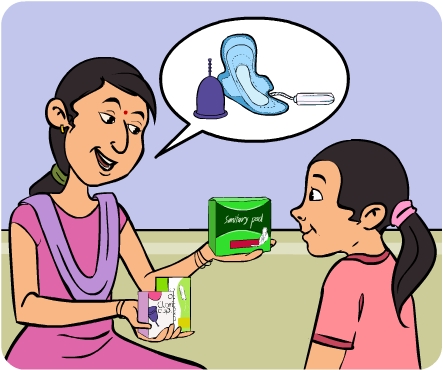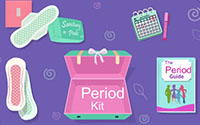How to talk about periods with your daughter?
Talking about periods with your daughter can be quite tricky. Making her understand her changing body is crucial and needs to be done in the right ways. Even if you are well-prepared, you might find that things can turn out different from the way you expected. Here are some things you can keep in mind while having a conversation to make the best out of a period-talk and help her be better-equipped for what's to come.
Be open and relaxed
Often, either because of your own experiences or the taboo nature of the subject, talking about periods might seem awkward and make you anxious. However, your daughter will only feel comfortable discussing periods and accept it as a natural process of her growing up if you reflect the same attitude. So, be calm, composed and patient when you approach the subject.
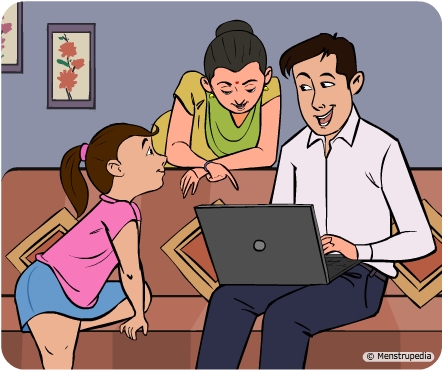
Be age-sensitive
Since menstruation is closely connected to biological phenomena like puberty, reproduction, and sexuality, it can be hard to decide just how much information is safe to give her, and when. Although this decision can vary depending on your intuition or your daughter's pace, it is generally a good idea to start with small conversations on puberty, hormones and the changing body as early as around age 6. Age 9 and upwards, you can touch upon periods, symptoms, general body positivity and the reproductive system. If you wish, you can leave out the specifics of sex and pregnancy and initiate them later, at around 11 or 12 years' age, but make sure you answer your daughter's questions adequately. More on the right time to have the talk is covered in detail, here.
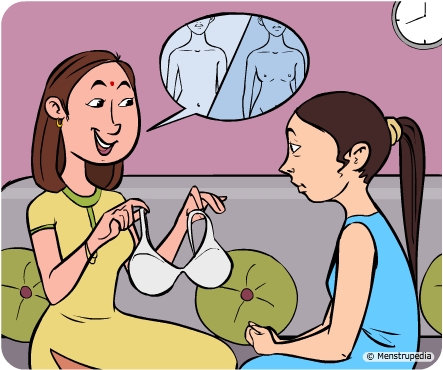
Do what works for your daughter
Every child is bound to be different in personality, temperament, and liking. Know what makes her tick, and include that to make your conversation enjoyable instead of looking forced or boring. You could watch videos about it together while talking, read a menstruation-based book or comic, or use any other resource. You can also connect things she likes or already knows to the discussion. If your little girl gets restless or does not want to talk, you might want to consider a later time. Nothing is more important than her feeling at ease. You can also consider transforming the conversation into play, going on a walk, etc. Sometimes, treating yourselves to ice-cream, or visiting your happy places once you're done can make it a valuable experience.
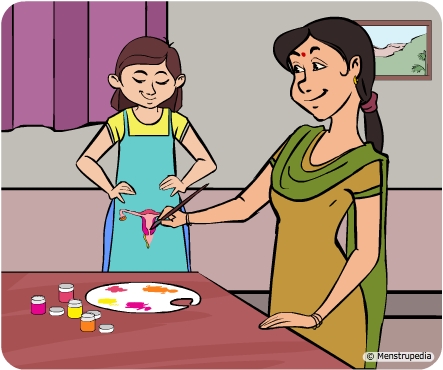
Have many small conversations
Another very useful approach to period-talks is breaking it into multiple ongoing conversations instead of one “big talk”. This helps normalize menstruation, removes any awkwardness and also lets her know that she can approach you whenever she wishes to. You can pick simple, everyday moments to talk about it like when you spot a sanitary pad advertisement, when you are back from the parlor, or when she asks you a question. The last thing you want is for it to look staged, and this helps it be spontaneous.
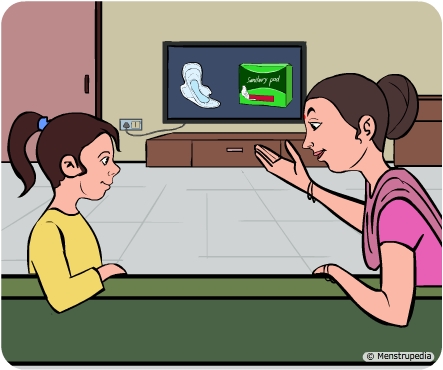
Have a healthy tone
Your tone plays a key role on how your daughter will identify with her body and menstruation. Be positive and yet, realistic. Validate her feelings. Tell her that it is normal to feel nervous, that it is natural and there's nothing to be worried about. Try to use specific words like 'vagina' and 'uterus' openly instead of being embarrassed or using slang phrases. Be scientific, but do not overwhelm her with terminologies. Most importantly, avoid calling it 'a curse' or emphasising how terrible it is. This can go a long way in your daughter being confident, positive and prepared.

Engage with questions
Your daughter will raise many questions about periods. Answer them to her satisfaction. If you don't know the answer, be honest about it and get back to her with a response. Even better, you can find out answers together. If she asks a question that you think could wait till she's older, be warm and encourage her curiosity. Then, provide an answer to only what she asks in a simplified way, promising a better explanation later. Period-talks are a two-way street. Ask her questions about what she has already heard or experienced. Chances are that she has already picked up things from her peers or noticed changes in herself. Really listening to her will make her feel valued. This also opens up an opportunity to correct any wrong information she may have.
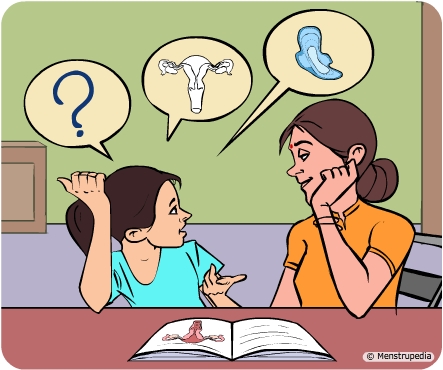
Connect to personal experiences and stories
You can try to spark conversations by relating them to your own life or those of relatives and friends. Say, “When I first got my period…”, or “This one time I forgot to take a pad to school…”. However, try to be light and positive about it. Even if you're talking of a particularly bad incident, be realistic, but do not scare her about it. Instead, tell her what you learned from those experiences and how she can be better prepared.
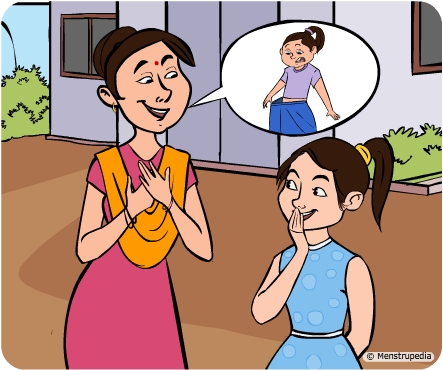
Cover health issues, hygiene and problems
Once she knows about menstruation fairly well, you can also touch upon topics covering choosing menstrual hygiene products, pre-menstrual syndrome, cramps and other likely experiences, managing a leak, staying hygienic, toxic shock syndrome, etc. This will help a better understanding and ensure that period-talk is not a one time deal.
